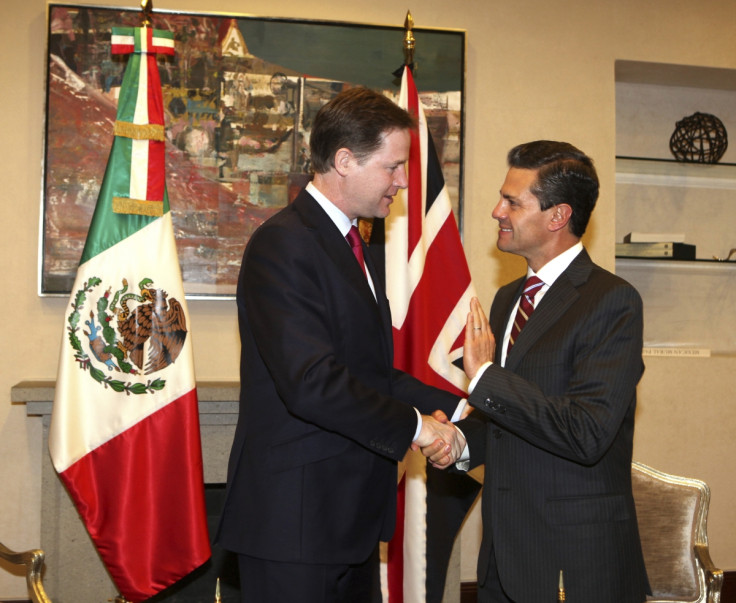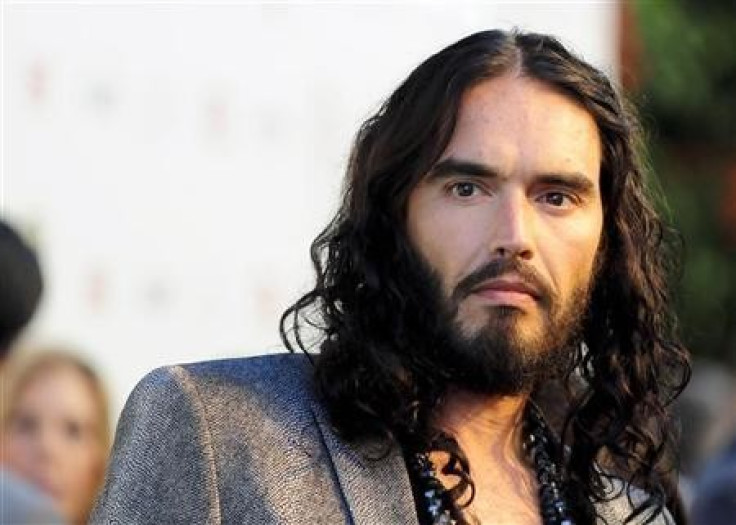Russell Brand is Wrong About Philip Seymour Hoffman's Death: It's Not Just About 'Stupid' Drug Laws

Before the ink had fully dried on Philip Seymour Hoffman's death certificate, rent-a-view celebrities, such as Russell Brand, peddled overladen prose about how draconian- or 'stupid'- drug laws are to blame for the Oscar winning actor's death.
While the war against drugs in the US and the UK is essentially failing, overhauling regulation and moving our society towards a more progressive attitude towards addiction and narcotics, is only part of the solution.
As with any disease, before you can cure it, you must first understand it.
Brand, to give him his due, deftly pointed out in his article for The Guardian that not only is "addiction a mental illness around which there is a great deal of confusion ... which is hugely exacerbated by the laws that criminalise drug addicts," but that progressive and tolerant" drug laws of Portugal and Switzerland, which "have seen crime plummet and drug-related deaths significantly reduced".
But with all celebrity political musings, it toes the line on truly commenting on the real, nasty root of the problem, and delivers on reputation-enhancing, yet career-kosher, opinions that won't get them in trouble.
After all, we saw what really happens when a celebrity gets called out on having a real opinion on political conflicts (See the Scarlett Johannssen and SodaStream saga).
How about getting to the root cause of the problem: the drugs trade in Mexico, Columbia and Peru.
Fighting the Production Line
Criminalising addicts is clearly not working but, while the utopian dream is cut out the product, it would be grand if the chatterati, politicians and big business went to the source of the rot and tried to cut it out.
This week, Britain's Deputy Prime Minister Clegg, as well as some of the world's largest companies made it clear why it is pretty easy for drugs trade to grow and spawn around the world, as really no one cares as long as firms can tap into the wider economy.
"Most of the investors I've spoken to accept there are parts of the country where there is conflict, there is violence, there is insecurity," said Clegg during a trade visit to the Mexican capital.

"But I think ... far from seeing threats, many, most, all of the members of the delegation I've brought only see opportunities in Mexico."
Yeah, of course.
Like with the celebrities that have mostly, at some point like Brand, dabbled in anything from marijuana to heroin, let's ignore the suppliers and focus just on fire fighting the symptoms in the US and UK.
Let's ignore how 80,000 people have been murdered as a direct result of Mexico's drug violence over the last seven years, let alone in other mass-drug producing regions and the rest of the world.
Clearly Britain is a long way off, as it aims to seak even more trade deals from with other countries, which have questionable as Clegg did not think legalisation was necessarily the answer.
"I don't think legalization is the magic wand solution for the drugs problem in the UK or the world as a whole," said Clegg.
"I'm not going to start telling the Mexican government or Mexican regional governments what to do."
Aye, there's the rub.
Maybe we should. Maybe we should start cutting on trade deals and investing in countries that are putting the drugs war on the back burner.
Maybe we should tell countries that unless there is a realistic and hardline approach at bringing down the suppliers, then the rest of the world will not be making it easier for people to become addicts.
It won't happen overnight but it's a start.
Helping Tackle Addiction
As Brand said, "people are going to use drugs; no self-respecting drug addict is even remotely deterred by prohibition," so will they care if it's legal either?
Legalisation will help decriminalise addicts but changing regulations will not necessarily help battle addiction itself.
Decriminalising drugs may have allowed Hoffman to die in better comfort and company, and not in "an inescapably bleak circumstance" in a hotel room, but would it have helped the actor battle a lifelong addiction?
Addiction, to anything, is complex.
A swoop in legalising drugs won't eradicate that and it won't erase the demons that many addicts let fester inside their heads, which eventually leads them to the path of self-destruction and emotional obliteration.

According to the Centre for Social Justice (CSJ), Britain is the "addictions capital of Europe" and other statistics make for painful reading.
Data from Drugscope show that there around 1.2 million people have been addicted to illegal drugs however latest statistics from the National Drug Treatment Monitoring System (NDTMS) in 2011-12 show that only 197,110 individuals aged 18 and over who were in treatment.
The gulf, in being addicted and getting the help, is huge.
Unlike Hoffman, who would have been able to afford private rehab centres, which can cost several thousand pounds a day, a majority of addicts need the help for minimal or no cost.
Shouldn't we be addressing the fact that if there are going to be addicts, at least we have the tools as a society to fully get people the help they need, whether it is legalised or not.
© Copyright IBTimes 2024. All rights reserved.






